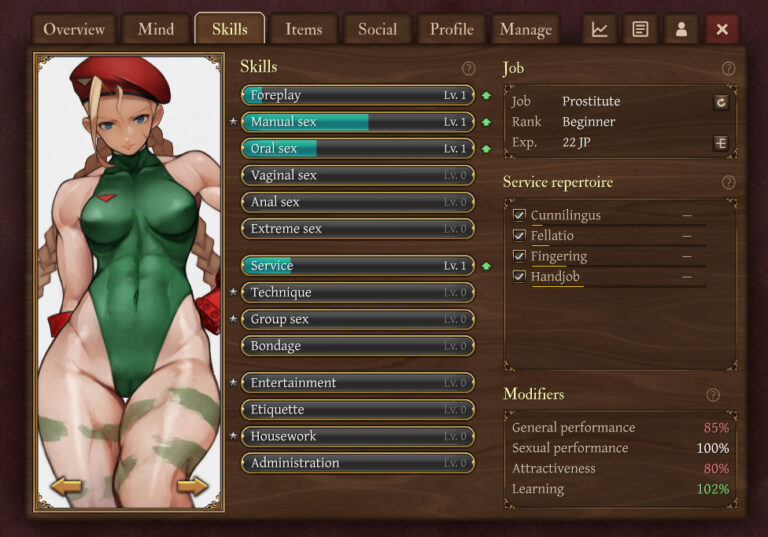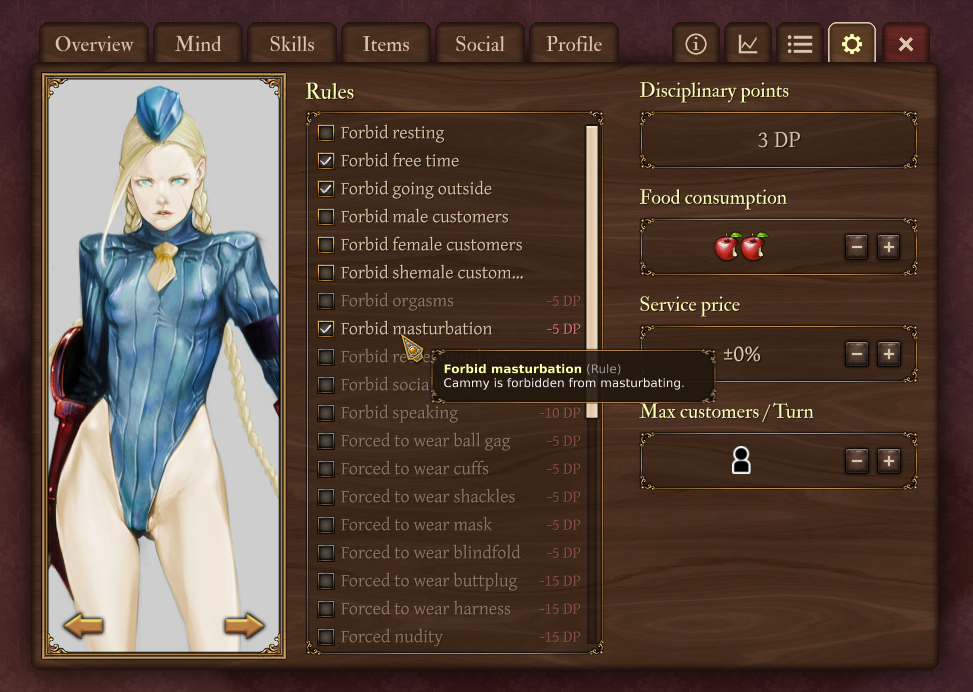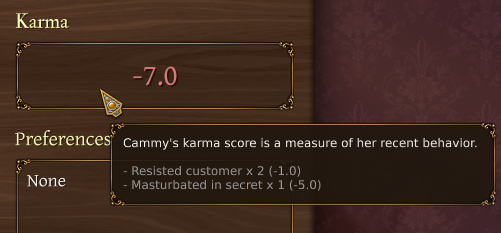As is often the case, I had an interesting idea in the middle of taking a shower the other day. It’s a change that affects training and how characters earn experience points. In order to explain it, I first need to talk a little bit about how experience works in this game.
(Btw, when I use the word “training”, it means instructional training, as in non-physical.)
Earning experience
There are two primary ways for characters to earn experience:
- Through training – either at the hand of a trainer or by reading books.
- Through practice – by doing the thing.
This works okay, but there are subtle problems with this picture. One is that the player could opt to not use the trainer at all. Even worse, you often earn money on top of the experience when choosing the practical route. This somewhat defeats the purpose of having a trainer, even though they should be the most important person in the brothel, at least thematically. I would prefer the trainer to serve a larger role than what this allows.
One way to solve this is to make it more worthwhile for the player to use a trainer, such as giving more experience points from training than from practice. This is the solution that I have been going with so far.
Unfortunately, that raises other issues. It is still possible for the player to use a trainer exclusively to level up their slaves as high as they want. The only trade-off is time and slightly less income. You can even get into a strange situation where a slave has reached the maximum of their sexual skills, but is still a virgin.

Let’s get theoretical
My shower induced solution to these problems was to split experience points into two parts: theory and practice.
- Theory is earned from training. Theoretical experience is not “real” experience and doesn’t contribute to the skill level or performance.
- Practice is earned when performing a skill. Practical experience and is what actually matters when it comes to performance and leveling up.
When a character earns practical experience, they also convert some of their theoretical experience into “real” experience. This lets them earn more than if they hadn’t received any training to begin with, and that is the point.
Let me explain it with a visual example:




The conversion rate is adjusted so that you always come out on top, accounting for the turn spent training.
Final thoughts
The effect of this is that training becomes more of a lubricant for character growth than actual growth. Trainers become instrumental to the progression of slaves without becoming exploitable. Finally, “turning theory into practice” just sounds right and makes thematic sense to me.
I’m a little bit worried about the added complexity, but I am confident I can explain it well in the UI. I’m going to feel this out for a while and see how it affects the game as a whole.
Technically, this was a very small change that only took an afternoon to implement. If it had been a larger change, I probably wouldn’t have done it this late in the project. If for some reason it doesn’t work out in the long run, reverting back to the old system is trivial.
If you have any feedback or thoughts, please share them on the Discord.




